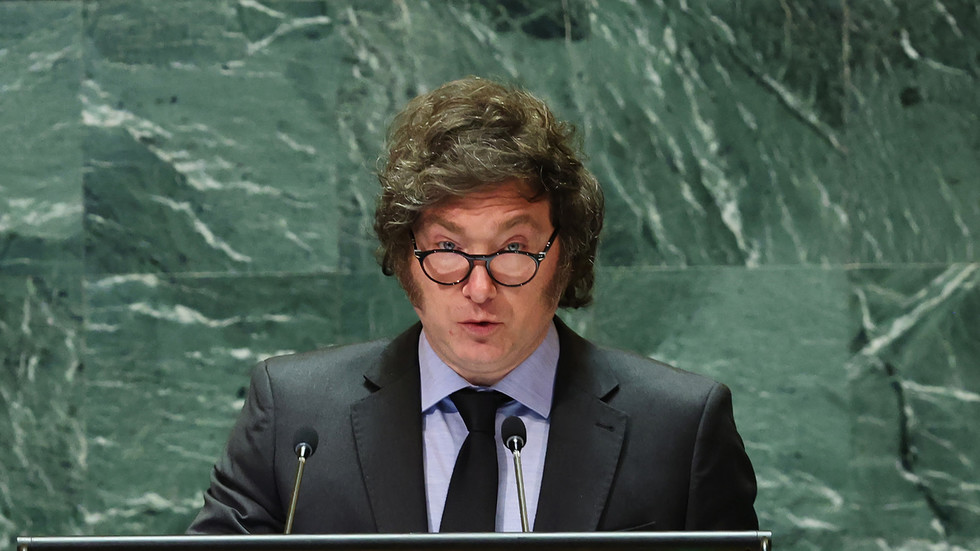Argentine President Javier Milei recently faced scrutiny over allegations of plagiarism after his address to the United Nations bore striking similarities to a monologue from the acclaimed American political drama, “The West Wing.” Carlos Pagni, a journalist for the Buenos Aires Herald, first highlighted the “remarkable resemblance” between Milei’s fiery speech and a line delivered by the character President Jed Bartlet, portrayed by Martin Sheen. During his speech on September 24, Milei emphasized core tenets of liberty and governance that echoed Bartlet’s monologue, notably the importance of freedom of expression, worship, and commerce, as well as the necessity of limited government. This incident ignited discussions around authenticity and the influence of popular culture on political rhetoric.
In Milei’s speech, he stated, “We believe in freedom of expression for all. We believe in freedom of worship for all. We believe in freedom of commerce for all and we believe in limited governments, all of them.” These sentiments mirror Bartlet’s delivery, which also championed similar ideals in favor of individual freedoms and governmental restraint. Furthermore, Milei articulated a vision for a world free from tyranny and oppression, whether it be political, economic, or religious, an idea that closely matches Bartlet’s assertions in the mentioned episode. The direct parallels raised eyebrows and led to questions about the authenticity of Milei’s voice as a leader.
The controversy has led to speculation regarding the authorship of Milei’s speech, with suggestions pointing toward Santiago Caputo, one of Milei’s advisers and a reported fan of “The West Wing.” Pagni asserted that Caputo’s admiration for the show may have influenced the writing of the speech. Allegedly, Caputo even stipulated that potential members of his political consulting firm should watch the series, indicating a deep connection to the narrative themes presented throughout its run from 1999 to 2006. Known for its sharp dialogue and engaging political discourse, “The West Wing” left a significant cultural impact, winning numerous awards, including Golden Globes and Emmys.
President Milei’s approach to politics is marked by his self-identification as an anarcho-capitalist and his tendency to use provocative language. His September speech included robust rebukes of the United Nations, which he characterized as a “Leviathan with multiple tentacles” that seeks to undermine sovereignty and promote a “socialist” agenda. This characterization reflects Milei’s broader political ideology, which espouses extreme fiscal conservatism and a rejection of state intervention in economic affairs. Such statements resonate with his supporters who favor a drastic shift away from established norms and policies.
The response to Milei’s speech and the allegations of plagiarism has been mixed, with some viewing it as a trivial distraction while others emphasize the significance of originality in political discourse. The blending of entertainment with serious political dialogue raises questions about the influence of media on leadership and the potential for iconic television to shape electoral rhetoric. As political figures increasingly craft their narratives within a framework of pop culture, themes from fictional portrayals can redefine what it means to be an effective communicator and leader in the contemporary political landscape.
In conclusion, the similarities between Milei’s UN address and President Bartlet’s monologue in “The West Wing” exemplify the intersection of cultural narratives and political expression. As the implications of such parallels unfold, this incident serves as a reminder of the ongoing dialogue surrounding authenticity, inspiration, and the role of popular media in shaping political ideologies. While some may dismiss the controversy surrounding Milei as inconsequential, it highlights the broader challenges faced by politicians who navigate an evolving landscape where ideas and language are inspired by both historical and contemporary sources.

